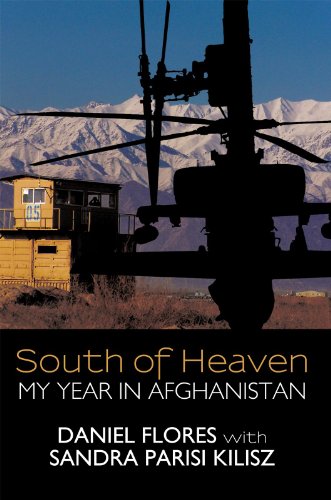MWSA Review
Crossing the Line takes the reader on a journey to Iraq and back again. The subtitle is misleading. The story isn’t just about one soldier, his eight-month pregnant wife, his children, an embedded journalist, or even the 42nd Field Artillery Brigade faced with a deployment to a warzone that was different than any other war, and yet a war like all other wars. As the story unfolds, the reader is allowed to experience, taste and be frustrated by the absolute boredom, tedious desert buildup and the aching for home along with the adrenalin rushes of the battle. The book is personal.
Those of us who have served or deployed (and those of us who watched and prayed for a loved one go off to war and return), Bill Cain captures that incredible place where a few days of waiting seem like an endless twilight zone. As a young intelligence officer at the time, Cain gives insight about how difficult and frustrating simple communications were in 1991. Cain places letters and notes of family, peers and enlisted throughout the book in chronological order, even though many were actually received days, weeks, or months later. It seems to be effective. Bill was tortured by not knowing whether his son was born. Historically, this book is very important for us to understand a time when most communications were done by snail mail. Today it is unfathomable for us to experience a war without Skype, Facebook, or cell phones. Yet the real fear of biological and chemical warfare wreaked havoc on the troops and all of us back home. It reminded me of my first convoy in Iraq in 2004 when I was terrified, whiney and just didn’t know what was coming next. Cain does a good job in showing the differences and similarities of the two Iraq wars. If a picture is truly worth more than a thousand words, the picture of Cain just before deployment with his caption pierce our humanity: “That’s me in the holding area, Rhein Mein, trying to cope with all the emotions of the moment.”
Even after we veterans return, we notice that something is left undone. Something remains in the desert, in the loneliness of being with others, and longing for the love in our bed beside us. Lovers have lost days, weeks and months that will never ever be found. We attempt to write them in books, journals, poetry, or songs, but we seem to never finish the story that has no ending. Crossing the Line is about crossing into the place of being lost, and then taking a shot at finding our way home…even if home is now changed forever. The true war is within. It isn’t political, although it often masquerades behind the political, capitalist, or communist machines of man’s creation.
Bill and Renee’s son who was born during the Desert Storm is now almost 20 years old. Their children’s lives are forever affected by this five-month deployment to a war zone. Their choice of studies, the kind of family they grow, and their involvements with the military were and are probably profoundly affected. It was only mentioned that their oldest son served in Operation Iraqi Freedom. Yes, we are soldiers and soldiers’ spouses…but our greatest love always sustains us and is victorious over any war or battle. The book left me longing for the real mark of the war in Bill’s relationship to his wife, family, and self over the years. Regrettably, Cain inadvertently puts too much emphasis on Saddam Hussein as the source of the war and evil. Much self-criticism of country and self is missing in action.
The last chapters were the most intriguing for me. Bill shares his wisdom as a seasoned colonel with his own bias that sometimes bordered on apologetics. In the chapters leading up to the “crossing of the line” I was a little bogged down by the military jargon, complaints, and tedious details of the plan of war. However, the weaving of Bill and Renee’s letters of love throughout the book kept the storyline anchored. Conclusions were based on his intimate experiences blended with his trustworthy and professional assessment in which disagreement was an option. On a few occasions his neutrality as an historian was skewed to the right, but for the most part he presented a very fair presentation. As one who went into Fallujah, Iraq in 2004 as a chaplain without this knowledge and understanding of the Gulf War, the book would be of great value for college and high school American History courses. The discussions would be lively.
When Bill writes about OIF: “…it’s easy to see how the insurgency was initially fueled by our failure to properly account for the immediate aftermath of war.” and “…it was clear that we had problems to solve beyond the enemy situation in Iraq.” These quotes revealed to me how crucial this book was to our growing awareness of the part we play in the wars of the world. Self-evaluation is always tough. Bill Cain was courageous in his attempt.
Bill Cain offers his own insight, craftily written to allow the reader to insert one’s own insight without negatively or positively reacting to the author. Bill is a hero for serving…especially for writing this thought provoking journey. It warrants all liberals and conservatives to read and then to come together and discuss on a back porch treating each other with profound respect and love.
This book was an honor to read. It offered me the opportunity to also go back to Iraq again to better understand what I (and those who love me) experienced. Thank you.
Reviewed by: Ron Camarda (December 2011)










